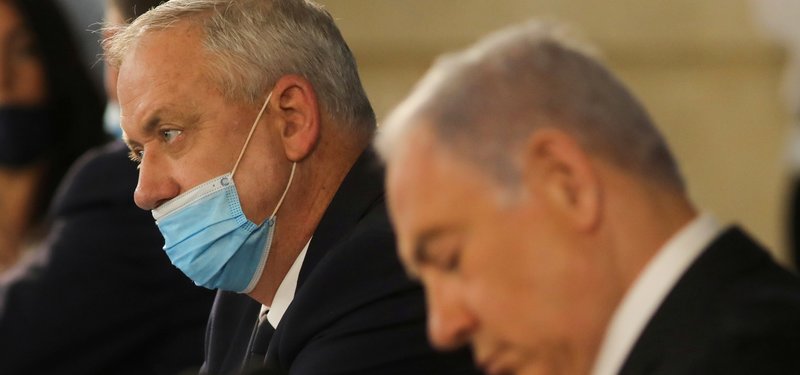
Netanyahu signals delay in West Bank annexation plan
“I spoke about the question of sovereignty, which we are working on these days and we will continue to work on in the coming days,” Israeli PM Benjamin Netanyahu said in a statement.
- World
- AP
- Published Date: 08:54 | 30 June 2020
- Modified Date: 08:54 | 30 June 2020
Prime Minister Benjamin Netanyahu said Tuesday that discussions with the U.S. on his plan to annex occupied West Bank territory would continue "in the coming days," indicating he would miss a July 1 target date for beginning the controversial process.
Netanyahu made the comments shortly after wrapping up talks with White House envoy Avi Berkowitz and the U.S. Ambassador to Israel David Friedman. The sides have been holding talks for several months on finalizing a map spelling out which areas of the West Bank will be annexed by Israel.
"I spoke about the question of sovereignty, which we are working on these days and we will continue to work on in the coming days," Netanyahu said.
Netanyahu has been eager to begin annexing West Bank territory in line with President Donald Trump's Mideast plan. The plan, unveiled in January, envisions turning over some 30% of the territory under permanent Israeli control, while giving the Palestinians autonomy in the remaining land.
But the plan to redraw the Mideast map has come under fierce international criticism. The U.N. secretary-general, the European Union and key Arab countries have all said Israeli annexation would violate international law and undermine the goal of establishing a viable independent Palestinian state alongside Israel. The Palestinians, who seek all of the West Bank as part of a future state, have rejected the Trump's plan.
Israel captured the West Bank from Jordan in the 1967 Mideast war. The international community considers the territory to be occupied, and for Israel's more than 120 settlements to be illegal.
But Trump has taken a far more conciliatory line than his Republican and Democratic predecessors. Netanyahu, a close ally of Trump, has said Israel must take advantage of what he calls a "historic opportunity," and is eager to move forward before the November presidential election.
Netanyahu says his goal of annexing all the settlements, as well as the strategic Jordan Valley, is necessary to protect Israeli security. He also has defended it in religious terms, saying the territories are part of the biblical Land of Israel.
Besides international opposition, Netanyahu has encountered some resistance from his governing partner, Defense Minister Benny Gantz.
The coalition agreement for their new government, which took office in May, gives Netanyahu the authority to present an annexation proposal after Wednesday. But U.S. officials have said they do not want to move forward with a plan unless the two leaders are in agreement.
Gantz, who also holds the title of alternate prime minister, said Monday that the July 1 target date was not "sacred." He also said that annexation "will wait" while the government grapples with Israel's health and economic crisis caused by the coronavirus.

